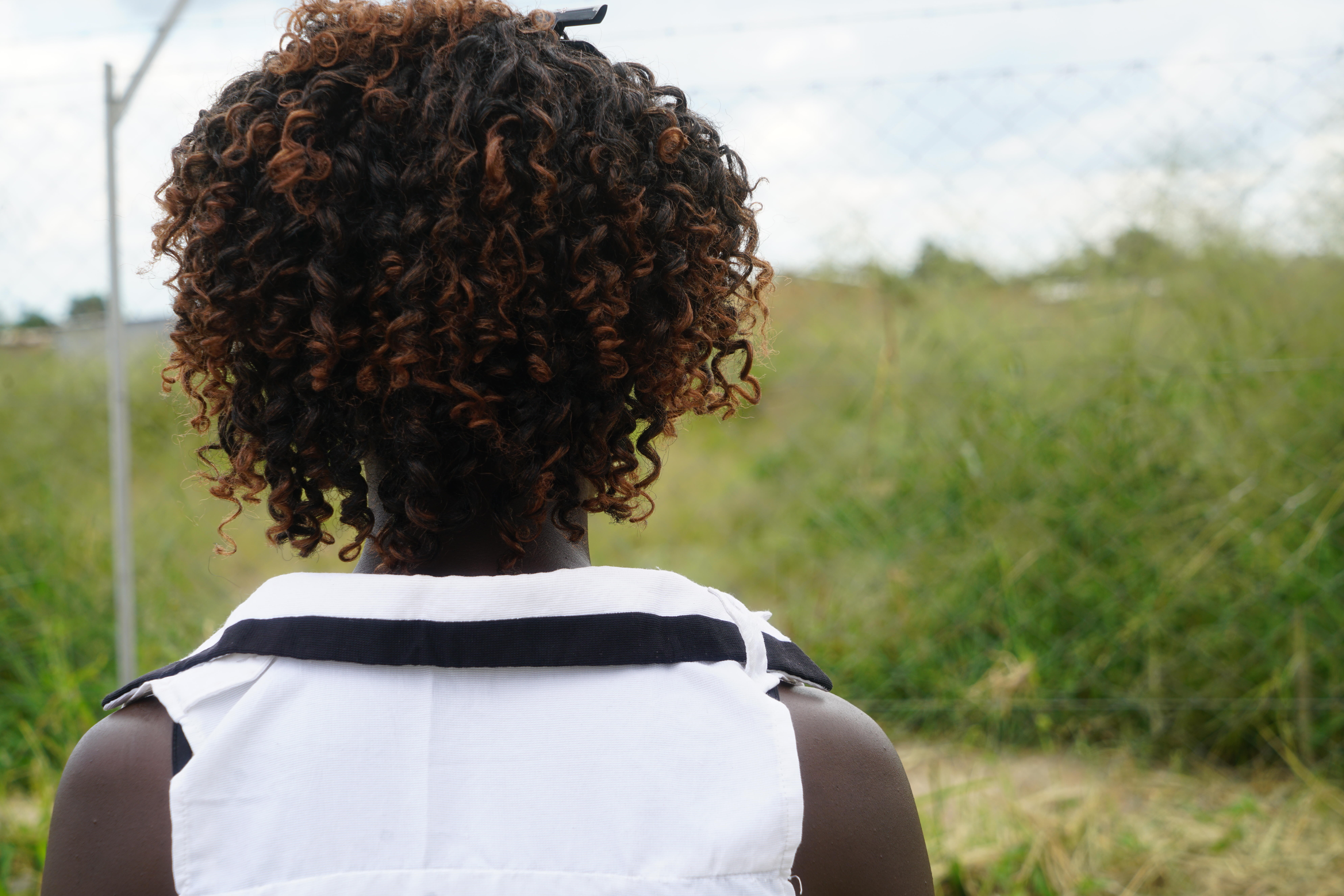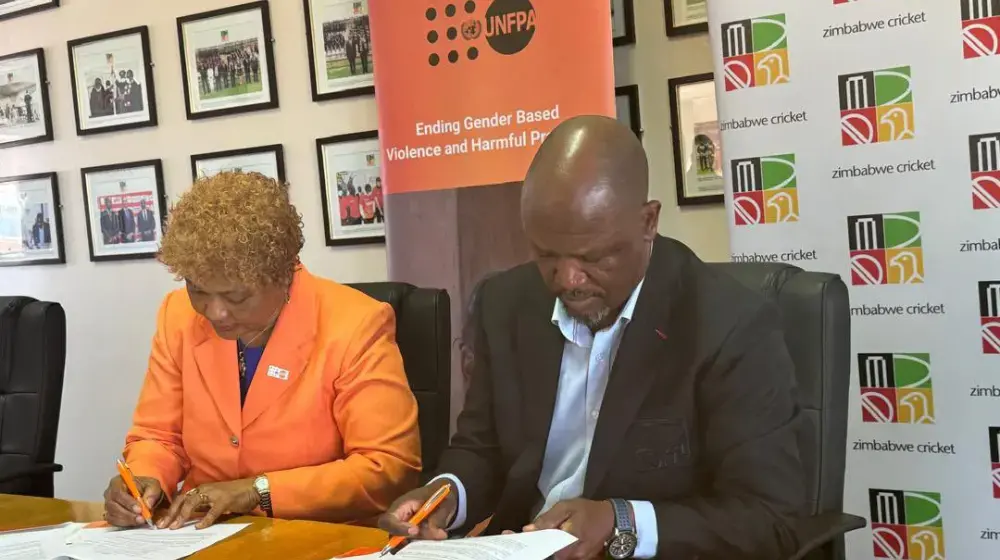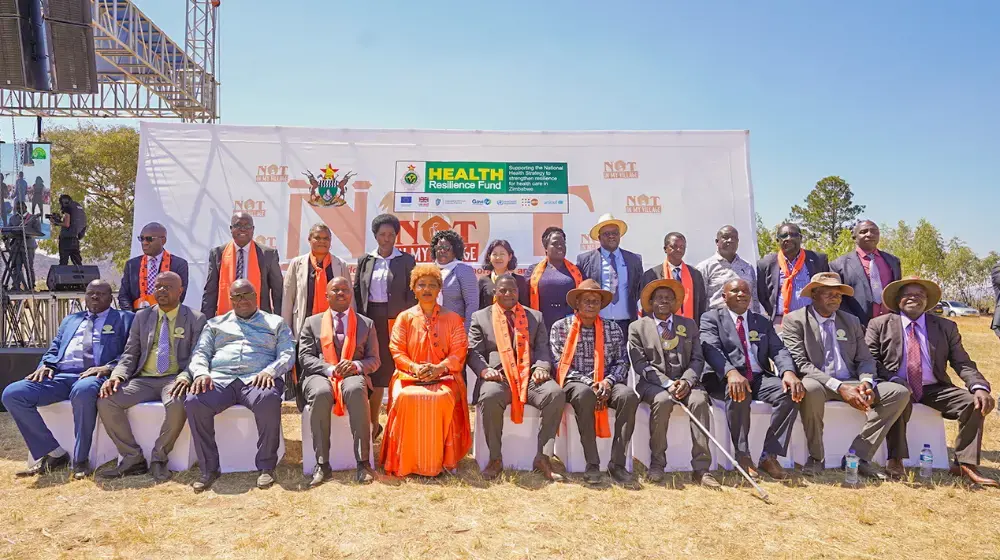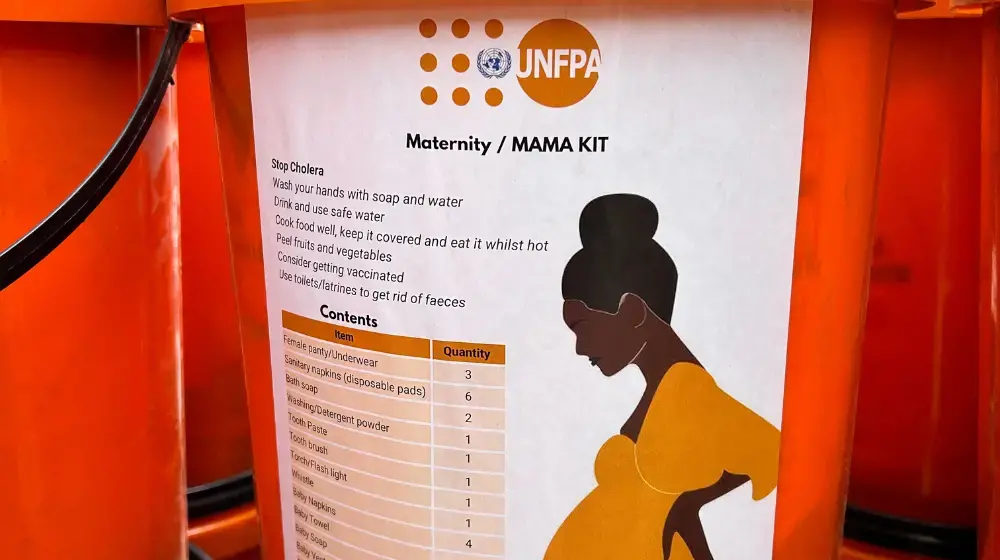*Faith and Hope are orphaned twin sisters from Mwenezi, a remote small district south of Zimbabwe. When their parents died, they were still very young and had to be taken in by an uncle and aunt. The two girls did not finish school and were asked to stay at home and assist with household chores.
“My uncle started admiring our bodies, emphasising that we should thank him for taking care of us. He then started coming to our bedroom and asking us if we are ready for fun. One day he raped us – that was the most painful experience and we cried all night,” says one of the sisters.
The following day, a neighbour noticed that the two were struggling with their walking and immediately inquired what had happened. Faith and Hope broke down and narrated what had happened. The girls did not know where to seek for help because Mwenezi is remote and located very far from facilities and amenities where they could seek GBV services. The neighbour explained that a mobile One Stop Centre was due in ward 12 the following day.
“We got there very early and waited for them but we were anxious if they were going to help us or not. When they arrived we noticed the welcoming counsellors and we were assisted. We managed to get clinical care and were given Post exposure prophylaxis. We were also taken to the shelter for safety because the Victim Friendly Unit officer had gone to pick up my uncle for arrest. If Musasa had not come, we would have missed the opportunity to get PEP and we were not even aware of it. We were also scared of moving around due to the lockdown. We are receiving services at the shelter and feel very safe. The court processes are going on and we are hopeful that this monster will be convicted.”
Gender-Based Violence (GBV) remains prevalent with the Zimbabwe Demographic and Health Survey-ZDHS (2010-11) estimating that 1 in 3 women aged 15-49 have experienced physical violence and sexual violence. At least with 90% of these having been committed by a current or former husband, partner, or boyfriend. The report notes that of those who experienced physical or sexual violence only 37% of sought help.
There are several reasons why some GBV survivors do not seek services. According to the Ministry of Women Affairs, Community and Small and Medium Enterprises Development GBV survivors in very remote areas like Faith and Hope often complain about the long distances they have to travel to access services – which usually costs them money. The lack of privacy at police stations and hospitals discourage survivors from going to these public facilities to seek services. Other concerns have been that service providers are located in different physical locations thereby inhibiting, rather than facilitating, immediate and timely access to critical GBV services. This results in some cases going unreported to the police but most importantly survivors do not receive life-saving services.
Realising these challenges the United Nations Population Fund (UNFPA) with support from the Central Emergency Response Fund (CERF) is supporting the Government of Zimbabwe to run mobile OSC in an effort to bring essential GBV services closer to the people. These services are provided at no cost to the survivor all under one roof.
During the COVID-19 lockdown period, survivors were unable to travel to access services at static facilities due to transport unavailability and movement restrictions, the mobile OSCs have been instrumental in ensuring survivors continue to receive critical services.
Raymond Chifamba, Ministry of Women Affairs, Community Development Office and mobile OSC administrator in Hopley, Harare South says mobile OSCs are beneficial to those who cannot afford transport costs to various GBV services located in different physical places.
“Bringing GBV services under one roof is meant to avoid unnecessary movement for the GBV survivor and others seeking services. This helps survivors to avoid the strain and difficulty of having to travel from place to place to access each individual service, and it increases the likelihood that the survivor will avail themselves for all necessary support,” Chifamba says.
“For survivors who have been traumatised by their experience of GBV, a mobile One Stop Centre means they avoid the stress and re-traumatisation of having to repeatedly detail and relive their experience of GBV, which would be the case if they were required to go to multiple service providers.”
The mobile OSC in Hopely is done 3 days in every quarter of the year at Tariro Clinic and Youth Centre.
In addition to taking essential services to the people in communities, the mobile OSC campaigns contribute to raising awareness about GBV and the referral pathway to survivors and communities. Community mobilization and outreach is conducted through road shows and is also meant to highlight the importance of accessing sexual violence treatment at health facilities within 72 hours and addressing misconceptions, such as the perception that there is need of a police report before accessing health services.
In Chipinge, District Development Officer, Gabriel Jaji says they have adopted a multi-sectoral approach in the mobile OSCs by including GBV support for persons with disabilities.
“In addition to the services that we are providing, we have reached out to like-minded organisations like Leonard Cheshire whose focus is on persons with disabilities who assist in ensuring that this group of people also access GBV services,” says Jaji
“The response from the communities in Chipinge has been overwhelming as we are recording over 200 clients per centre within an outreach – we need more outreach sessions to enable us to get satisfaction that those needing services will have accessed them.”
According to Jaji, the mobilisation of communities ahead of the mobile One Stop Centre outreach in Chipinge is done by Ministry of Women Affairs’ Community Development Coordinators, Behaviour Change Facilitators (from FACT) and Child Case Workers (CCW).
*Their names have been changed to protect their identities





